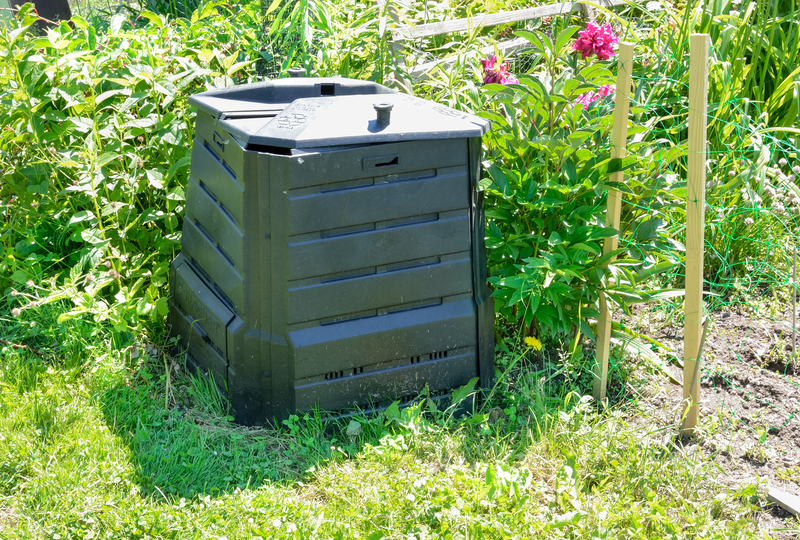Thoughtful Strategies to Reduce Plastic Usage: A Comprehensive Guide
Plastic waste is a growing concern worldwide, impacting not just the environment but also our health and future generations. Adopting thoughtful strategies to reduce plastic usage is no longer a mere lifestyle choice but an urgent necessity. This comprehensive guide explores highly effective ways to minimize our reliance on plastics, highlighting practical steps that individuals, communities, and businesses can implement today.

Understanding the Impact of Plastic Pollution
Plastic, especially single-use plastics, has become an integral part of everyday life, but at a significant cost. Global plastic production has increased exponentially over the last few decades, leading to severe environmental issues, from polluted oceans to overflowing landfills.
- Marine Life Threat: Millions of marine animals die each year due to plastic ingestion and entanglement.
- Soil and Water Contamination: Microplastics leach toxic chemicals into soil and water sources, impacting food safety and human health.
- Resource Depletion: Plastic production relies heavily on fossil fuels, contributing to climate change.
Understanding the gravity of plastic pollution is the first step toward embracing solutions and integrating plastic reduction strategies into our daily lives.
Why Should We Reduce Plastic Usage?
Reducing plastic consumption is critical to:
- Protecting terrestrial and aquatic ecosystems.
- Minimizing environmental toxins.
- Safeguarding human health for future generations.
- Supporting sustainable and circular economies.
Each small action to limit plastic use combines to create significant positive change--for the planet and its inhabitants.
Smart and Thoughtful Strategies to Reduce Plastic Usage
Let's delve into the most effective and intentional ways to reduce plastic consumption every day.
1. Choose Reusable Alternatives
The easiest place to begin is by swapping single-use plastics for reusable products. Here's how:
- Carry a reusable water bottle made of stainless steel or glass.
- Bring your own cloth shopping bags rather than relying on plastic bags at stores.
- Use reusable coffee cups and thermoses for your daily caffeine fix.
- Opt for reusable produce bags and containers for fruits and vegetables.
Switching to reusable options significantly reduces the flow of plastic waste. It's a simple yet highly influential step toward sustainable living!
2. Rethink Packaging and Shopping Habits
Most plastics enter our lives through product packaging. Here are some thoughtful shopping habits that curb plastic waste:
- Select products with minimal or biodegradable packaging.
- Visit bulk food stores to purchase items using your own containers.
- Choose glass, paper, or metal packaging over plastic whenever feasible.
- Support local farmers' markets to find fresh produce without plastic wrap.
Conscious purchasing decisions encourage companies to rethink their packaging, driving wider industry change.
3. Embrace Eco-Friendly Household Swaps
Every room in the house presents opportunities for reducing plastic. Consider these alternatives:
- Switch to bamboo toothbrushes instead of plastic ones.
- Choose compostable sponges and cleaning cloths over synthetic options.
- Buy nontoxic personal care products that come in metal or glass containers.
- Make your own cleaning solutions to avoid buying chemicals in plastic bottles.
Small swaps add up and create momentum toward a plastic-free home.
4. Opt for Sustainable Food Storage
Ditch plastic wrap and single-use containers by exploring these sustainable food storage options:
- Beeswax wraps: A biodegradable, easy-to-clean alternative to cling film.
- Glass jars and containers: Perfect for leftovers or packed lunches.
- Silicone food bags: Reusable, versatile, and freezer-friendly.
- Stainless steel containers for stacking snacks and meals on the go.
These alternatives not only cut down plastic usage, but also help keep your food fresher for longer.
5. Get Creative: DIY and Upcycling
Minimizing plastic use can spark creativity. Instead of tossing plastic items, find ways to reuse or repurpose them:
- Turn old plastic containers into plant pots or organizational bins.
- Use plastic bottles for DIY craft projects with kids.
- Re-purpose packaging materials for shipping or moving.
*Upcycling extends the life of plastics* already in circulation, reducing the need for new plastic products.
6. Support Businesses with Sustainable Practices
Your purchasing power matters! Seek out and endorse companies with environmentally responsible initiatives:
- Buy from brands offering refill stations and zero-waste products.
- Look for sustainable certifications (e.g., B Corp, Fair Trade) on packaging.
- Choose local restaurants using compostable, recyclable, or reusable containers.
When we show demand for sustainability, businesses adapt and improve their practices accordingly.
7. Practice Plastic-Free Events and Travel
Reduce your plastic footprint while hosting events or on the move:
- Use reusable or compostable plates, cups, and cutlery at gatherings.
- Encourage guests to bring their own containers for leftovers.
- Pack snacks, utensils, and a water bottle when traveling to avoid impulse single-use purchases.
By planning ahead, you can enjoy festivities and travel without unnecessary plastic waste.
Community and Global Approaches to Reducing Plastic Usage
Tackling the plastic problem requires systemic solutions and collective action. Community-driven programs and policy changes are essential components of winning the fight against plastic pollution.
1. Advocate for Local and National Bans on Single-Use Plastics
Many cities and countries have successfully banned or heavily taxed items such as plastic bags, straws, and cutlery. Stay informed and support policies that reduce plastic dependency in your locality.
- Participate in local government meetings and discussions.
- Sign petitions advocating for reduced plastic use and better recycling infrastructure.
- Volunteer or contribute to non-profits focused on waste management and policy change.
2. Organize and Join Clean-Up Initiatives
Community clean-up events not only remove existing plastic waste from parks, rivers, and beaches but also raise awareness about the sheer scale of the problem. Encourage friends, family, and colleagues to join regular clean-ups and promote responsible disposal habits.
3. Encourage Schools and Workplaces to Go Plastic-Free
Education plays a crucial role in shifting attitudes and behaviors. Suggest sustainable practices in educational and professional settings:
- Host workshops on the dangers of plastic pollution.
- Implement recycling and composting programs.
- Promote sustainable school and office supplies.
- Reward plastic-free initiatives and offer recognition to participants.
*Plastic usage reduction becomes easier when embraced collectively!*
4. Support Innovative Recycling and Circular Economy Initiatives
True progress lies in rethinking our consumption model. Encourage and embrace innovative recycling programs and circular economy initiatives:
- Support brands using recycled plastics in their products.
- Participate in take-back programs for electronics and plastic packaging.
- Stay updated on local recycling guidelines to maximize impact.
Closing the loop is crucial to a sustainable future, minimizing waste and maximizing resource value.
Top Tips for Staying Committed to a Plastic-Free Lifestyle
Adopting thoughtful strategies to reduce plastic usage is a journey, not a destination. Here are some tips to help you stay motivated and consistent:
- Set realistic goals and start with simple swaps before tackling bigger changes.
- Track your progress by noting the plastic items you've eliminated from your routine.
- Connect with online communities to share tips, find encouragement, and swap ideas.
- Educate yourself and others on the latest sustainable products and best practices.
- Celebrate each milestone and inspire others by leading with example.
The Road Ahead: Building a Low-Plastic Future
While the challenge of plastic pollution can seem overwhelming, change is possible through thoughtful, consistent action. The more we adopt practical ways to reduce plastic reliance, the greater our collective impact will be on environmental conservation, biodiversity, and future generations.
Summary of Key Thoughtful Strategies to Reduce Plastic Usage:
- Make conscious purchases and choose reusable products.
- Advocate for policy changes and support eco-friendly businesses.
- Educate yourself and your community about the plastic problem.
- Embrace innovative solutions and collaborate on communal efforts.
- Never underestimate the power of small, everyday choices.
Each intentional step brings us closer to a cleaner, healthier, and plastic-free world. Start integrating these strategies into your life today and be part of the solution!

Frequently Asked Questions on Reducing Plastic Usage
What are the health risks of plastic usage?
Research shows that certain plastics leach harmful chemicals, such as BPA and phthalates, which are linked to hormonal disruption, cancer, and other health issues. Reducing plastic contact, especially with food and drinks, can lower these health risks.
Are biodegradable plastics a good alternative?
While biodegradable plastics may break down faster than conventional plastics, many require specific industrial composting conditions not available in regular landfills. Opt for truly compostable products or natural materials whenever possible.
Can recycling solve the plastic crisis?
Recycling is important, but it is not a complete solution. Globally, less than 10% of plastics are recycled. The most impactful approach is to reduce plastic usage at the source and support the development of a circular economy.
Final Thoughts
By integrating thoughtful strategies to reduce plastic usage into our daily routines, we accelerate real progress in environmental stewardship. Be bold, be creative, and make a positive difference--one choice at a time.